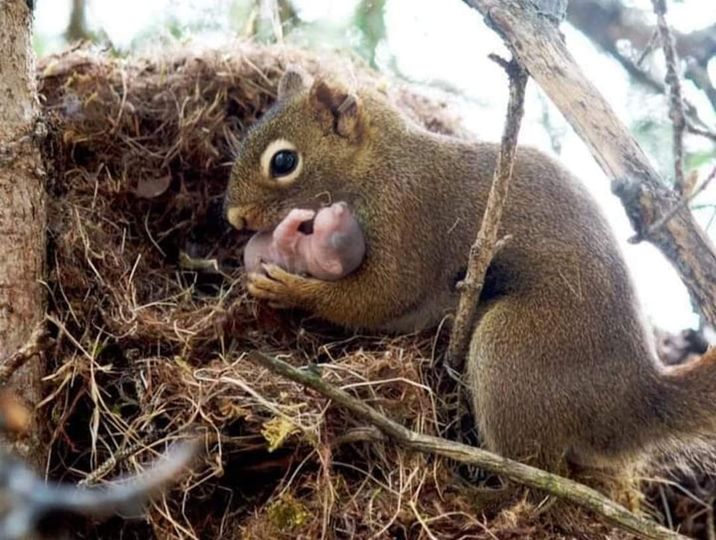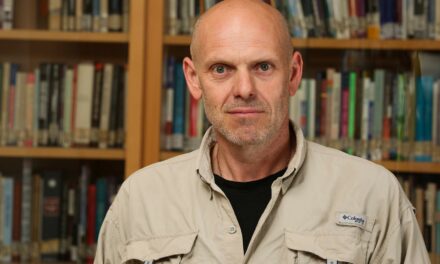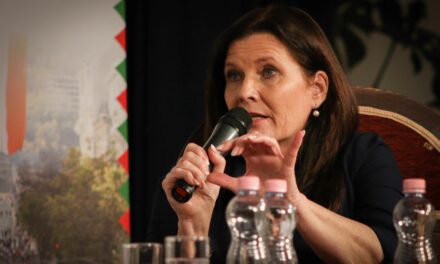Today, on Earth Day, I am reminded of how intelligent the planet's living creatures are. While we are proud of our abilities, with which we have built a second nature, but only for our own environment.
We search the universe, we chase after black holes that have escaped, we long for meaningful signals from afar, while here around us there are animals and plants that make more sense, but we hardly hear them. We think of the cabbage's scream as blood, we shudder with pleasure when we hear the same from a crawfish thrown in hot water, we think the behavior of animals is incomprehensible, or at most we understand as much of it as we need to. We stare at the wonderful eyes of bees with a microscope, but we have no idea what they see with them, we accept that dogs smell, but we do not understand what information they get and what they do with it. Yesterday I read an interesting article about the squirrel family (because sometimes we marvel at those little miracles, especially when it comes to an anthropomorphic (human-shaped) fairy tale. I'll copy it here:
When a female squirrel finds a foreign baby squirrel, she feeds it and then makes sure that it is an orphan, without a mother or father. And when he was convinced that he was left without a family, he carefully held him and fed him, taking him home. He lets her know that they live with their children.
The female squirrel is unique in that she greets her husband with kisses and courtship when he returns with food to ease the strain of carrying food for her and her young.
The male squirrel always expresses his love for his female by giving her the most beautiful roses and the biggest walnuts and almonds…
A wonderful family for the future of humanity depends on the activity of squirrels. Because half of the stored seeds develop into new bushes in the forest.
Let's learn some wisdom from the animals! (Source Facebook/Kati Kotári)
Well, as I mentioned, we welcome those animal stories that are dear to our hearts, but we have a hard time understanding the bear that climbs into our house for food, the deer that just crosses in front of the car, because its path has been taking us there for centuries, only we built a road on it cross, or the sharks that unexpectedly appear in the warming waters.
We are horrified to look at the frescoes of Zólyom Castle in the wake of Aesop's fables, where animals take tied and skewered people to be roasted triumphantly, or hunt them with arrows and sit a cake over them. (As it happens to them too!) Aesop already recognized in ancient times how unsustainable human selfishness is and put it in animal skin as a warning.
How much suffering we create just with our large-scale animal farms! These animals would not be born, according to our needs, to be killed by the millions. Chickens wouldn't be locked in crowded cages with their wings cut off (cf. Vonnegut), cattle wouldn't produce more methane than the swamps of Siberia, conveyor belts wouldn't throw out the dismembered lambs (who thinks of them standing with trembling legs in front of the slaughterhouse?) - , if people would understand and treat their surroundings in a gentler, friendlier way.
How beautiful it would be to have a garden-Hungary, culture and nature conservation together following the vision of László Németh.
At the first World Summit conference in Rio de Janeiro, I was able to be present with a film crew and met a philosopher-photographer, her name is Courney Milne, author of the book Sacred Earth, among other things, who photographed sacred places, and I asked her in an interview whether why there are pictures in his book that, as far as I know, were not taken from classical holy places, he answered this as follows:
these are small parts of the planet, a garden, a hillside, a forest, a stream, which someone considers sacred, keeps its secrets. If everyone considered only this area sacred and took care of it: the Earth would become holy!
Featured Image: Facebook













